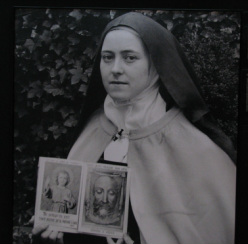 I visit the assisted living community where my father lives very frequently, and through these visits I have come to know many of the other residents. Recently I made a new friend in a woman whose name is Theresa. She told me that she has a great love for St. Thérèse, and that she was named for this great saint. So I told her that upon my next trip to the community I would bring her some pictures I had taken on a trip to France. The next day I came back with prints of a display of photos of St. Thérèse which were in the cathedral of Notre Dame in Paris. When Theresa saw the photos of St. Thérèse she said she thought they were statues, so I explained that St. Thérèse had died in 1897 and that these were real photos of her; I explained that my pictures were photos of photos. As we talked it became apparent my new friend did not realize that Thérèse had died so 'recently'; she thought the Little Flower had died a thousand years ago. We conversed for quite a while and she was aglow with the discussion of her favorite saint and namesake. Finally I had to leave, so I told her she could keep the photos because I had made the copies for her. As I stood to go, she said: "It has been so wonderful to spend this time with you. It is incredible to know someone who has met St. Thérèse!" I said, "Oh goodness, no. These were photos taken of St. Thérèse in the 1890's and I merely took photos of the display.” She seemed a bit confused by this, but we both laughed and we parted for the day. After I left, the encounter stayed with me. It was a humorous experience, though it was a bit sad Theresa was not as clear as she once was with some of her memories and knowledge. It was a gift, and therefore a joy, however, to realize that what brought us together was our shared love of a saint. And it did not take me long to realize that I had, in fact, met St. Thérèse. I had met her many, many times, including that interchange with this dear lady at the assisted living community. And my friend had met her, too. Of this, I have no doubt. I recognized this experience in the Sunday Gospel this week, which is about the man born blind. Like him, we are all seeking to have our sight broadened and our blindness healed. Just as I had to be reminded that I have met St. Thérèse through a long relationship, (friendship), with her as an intercessor and inspiration, we all need to have the blinders lifted in many areas of our lives. God is all around us, and yet often we fail to see Him, which is what the story of the man born blind teaches us. In the gospel (John 9:1-41) the blind man was sitting on the side of the road begging when he encountered Jesus as He passed by. The man courageously called out to Jesus so that He would stop and offer him healing. He had the faith to recognize Jesus, which means he already had the spiritual sight to know just who this was who was passing by, and he also had confidence in the healing compassion of Jesus. This man was less blind than those around him, which Jesus attests to later in the passage, and therefore he accepted the gift of healing. In contrast, the Pharisees did not believe what was plain to see. The man who had been blind since birth now had physical sight, and they refused to believe that this was so. Their refusal was deeper than failing to see the man's healed condition: they refused to see who was behind the healing. They refused to believe that Jesus was who He said He was or that He could offer healing and freedom. All they could fixate on is that Jesus had done this on a Sabbath, and therefore He broke the rules. They said, “We are disciples of Moses.” Therefore they were not open to becoming disciples of the author of the Law, who was trying to tell them that love drives the law, not blind obedience to a rigid set of rules. Jesus was trying to tell them that they had the Law all wrong. But having that enslaving attitude of 'we have always done it this way' kept them from true inner freedom. They were bound tightly by their blindness to the way of love. It is tragic when we allow ourselves to be so tightly bound to rigid self-imposed rules. The gospel frees us, but being offered freedom can be difficult for us because it means we have to let go of what we think we know and accept new sight. It means we will see things about ourselves we may not want to see, but are realities. In seeing those things which hold us back we are offered healing and new life, but the only way to it is to accept that they are there and to allow the Lord to help us let go. We can be blind to a lot about ourselves and about how much the Lord loves. That is why this Fourth Sunday of Lent provides those who are coming into the Church a second week of prayers called Scrutinies which are prayed during the Liturgy with the gathered community. While the catechumens are asking to be healed of their previous blindness so that they can truly see the Lord in a new way at Baptism, those of us who are already members of the Body of Christ should also be praying not just for them, but also for ourselves to be healed of whatever blindness has crept into our lives. We are all blind to some degree or another. It may be in how we judge others, it may be in how we judge ourselves; it may be in how we judge God! We might be blind to how we hold ourselves bound by withholding forgiveness toward others or toward ourselves. Our blindness may be about something we are called to do, but we refuse to see it. It may be a blindness that is very subtle, such as a negativity that has found its way into our attitude. It could be a failure to see beauty or to trust that He can help us in times of trouble. 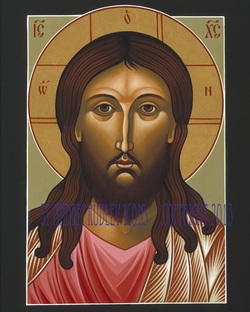 All of us could use some healing of blindness and we find it in the sacraments, especially the sacrament of Reconciliation. When we reflect upon our sinfulness in preparation for the sacrament, we begin to see that which was previously hidden. When we bring it to the Lord for healing, we see it in the context of His love, and realize that we do not want to be held captive to our sin, but that we need His help to be freed. God provides the grace we need to be strengthened and respects our sorrow for our sin so greatly that His response is of pure love, not of judgment. Being able to see more clearly by being healed of our blindness should be something we all seek. To be able to see God more clearly and to be more aware of His presence is a great joy. To see beauty in the people we are with daily, whether familiar or stranger, is an incredible gift. To see the handiwork of God in nature and to appreciate it will bring greater gratitude for all of the gifts we have been given. We will see saints all around us. And we will see why saints see God all around them, such as St. Thérèse who saw herself as but a little flower in God's garden, and who wanted to spend her Heaven sharing the freeing, healing love of Jesus with us. But the greatest gift is to see how loved we are, and what it is that the Lord sees in us. He sees us as incredibly and uniquely beautiful, and oh, so loveable. He wants us to see ourselves as He does. If we can see this, we can then see how He sees those around us similarly, and that alone will open our eyes to what it means to love with His heart. May we have the desire to be healed of our blindness! May we turn to the saints to inspire us in our desire to truly see as they do! May we ask for the gift of spiritual sight, that we may see as Jesus sees! May we take the time to reflect on our areas of blindness and seek healing through Reconciliation and Eucharist! May we accept the gift of Love and new sight which the Lord so dearly wants to give us! And may we pray that we may see the beauty of the presence of God in our encounters with our all our neighbors, young and old, poor and rich, ill or in good health! Let us continue to meet in the Heart of our Lord Jesus, who grants sight to the blind! Peace! ©Michele L. Catanese All the photos are mine. I took the first one, of St. Thérèse of Lisieux, as mentioned in the text, at Notre Dame Cathedral in Paris. The series of night sky shots were taken from my yard. The series is meant to symbolize the progression from blindness and indistinct vision to greater clarity, until finally one sees with detail. The icon is Jesus Christ Holy Forgiveness by Fr. William Hart McNichols and can be found at http://www.fatherbill.org/all-categories/product/41-jesus-christ-holy-forgiveness
Joan Barry
3/30/2014 10:48:25 am
Thank you! I had a beautiful experience of sight at Mass today.
David
4/3/2014 05:21:39 am
Michele, Comments are closed.
|
Heart Speaks to Heart
|
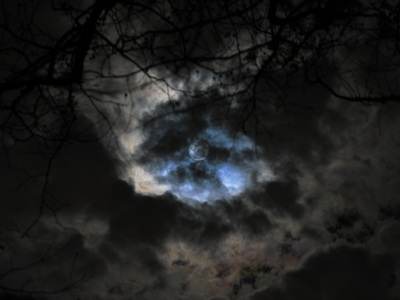
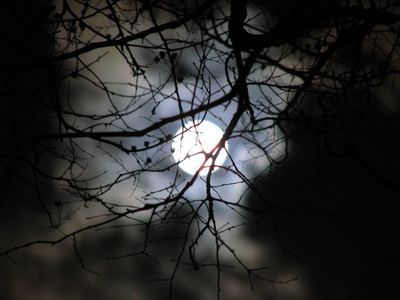
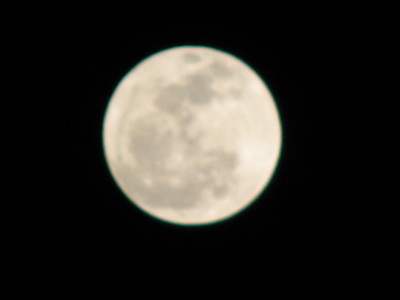

 RSS Feed
RSS Feed

